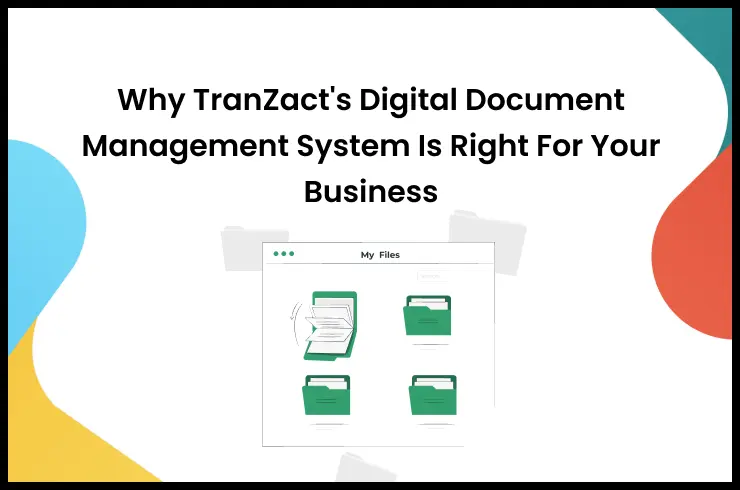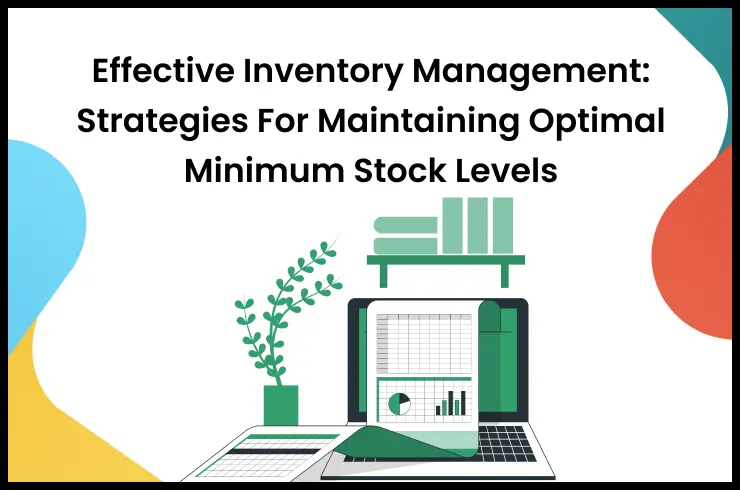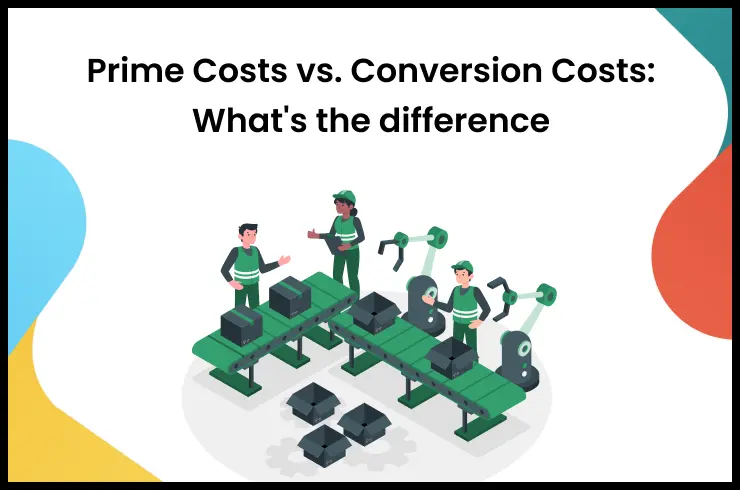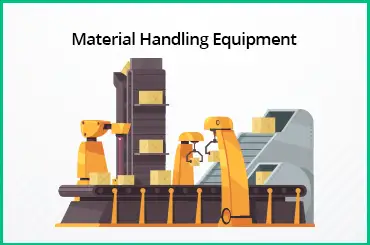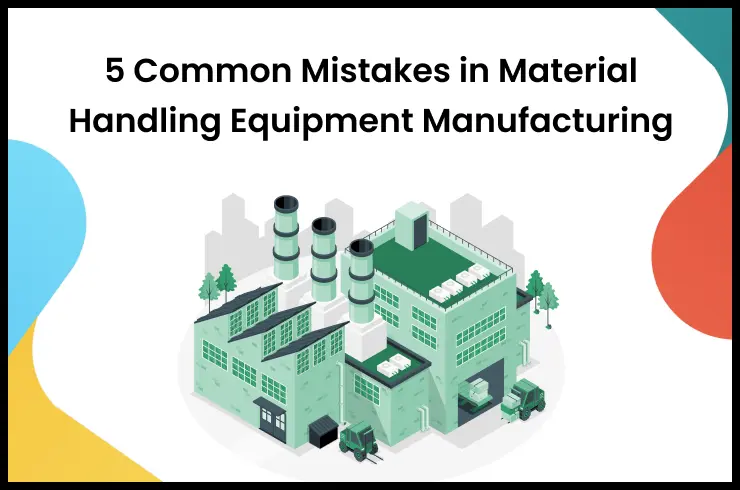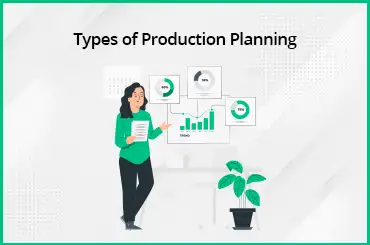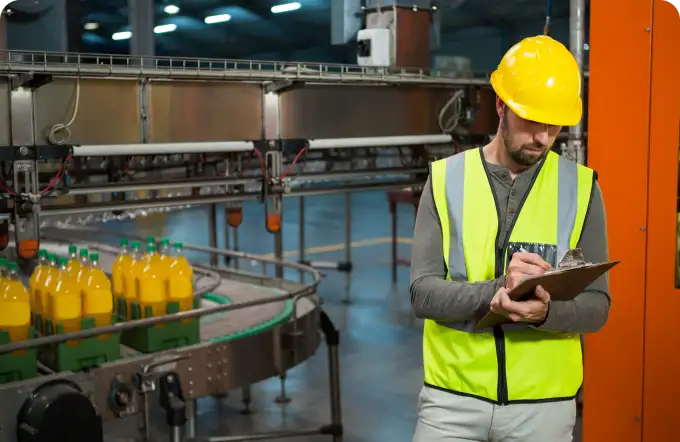If you want to dive deeper into what is process manufacturing, then you will get all your answers right in this article. Several methods of manufacturing goods exist, but the most common process that is used in most industries is process manufacturing.
We have shared detailed information related to production by method and the industries that mostly use it. So now, let's start understanding all the details involved in process manufacturing, starting from the definition to the types, processes, advantages, and more.
What Is Process Manufacturing?
Process manufacturing is the method of producing finished goods by combining ingredients and raw materials into a specific formulation and recipe. The manufacturing process is carried out under specific conditions of heat and pressure to achieve the final product. Curing, baking, pressurizing, pasteurizing, and chemical catalyzing are some of the common actions performed to combine the ingredients used for manufacturing.
The goods produced by the production process are carried out on a batch-by-batch basis. The units of materials or intermediate products are moved from one process step to the next in a continuous flow process. Each processing step is performed in such multiple stages that once the process reaches its final form, it can't be broken down into its constituents.
Manufacturing industries need to track the processing parameters and testing that are followed on each batch or a specific interval based on volume or mass in a continuous-flowing process. And all the requirements are needed to be recorded on paper. Some industries have also started using electronic batch records (EBRs) to streamline recordkeeping and increase production.
Consumer packaged goods (CPG), food & beverage (F&B), and fine and specialty chemicals are the key industries that are involved in this type of manufacturing. Some manufacturers also use this for a process for packaging the goods, which makes them manage a dual value chain involving the discrete manufacturing operation in addition. All the operations are handled by the manufacturing operation management (MOM) software of the processed industries.
Key Characteristics of Process Manufacturing
So far, you must have understood what is process manufacturing in detail and even gained some idea of its features. Now, let's see the key characteristics used in the production method under process manufacturing.
A. Continuous Production
The process of manufacturing involves batch process manufacturing, where all the steps of production are carried out in various stages. All these stages are carried out maintaining continuity while taking a slight break on moving from one stage to another. This process is continued until the final product is achieved that further can't be broken into small segments.
B. Complex Supply Chain
The process manufacturing industries focus their operations on the specific formula, master recipes, and master batch that are tracked through master batch records (MBR). The process is critical and challenging in testing and tracking the raw materials as compared to discrete manufacturing operations. As a result, manufacturing operation management solutions, especially the manufacturing execution system (MES), are used to track operational parameters.
C. High-Volume Production
As we have discussed above, process manufacturing uses a batch system that consumes less time in production. The manufacturing process also involves a mix-and-blend process using various ingredients that are identified by attributes and increase the production planning efficiency and capacity.
D. High Level of Automation
Process manufacturing can't be monitored by using manual tracking and tasting as several parameters are needed to be measured. So, industries use a high level of automation through process manufacturing software to acquire accurate data on ongoing operations.
E. Strict Quality Control Measures
The last characteristic is strict quality control measures as some specialized chemical industries are also involved. The production process also followed by tyre and battery manufacturers involves both process manufacturing and discrete manufacturing and uses strict quality control.
Types of Manufacturing Processes
Various types of manufacturing processes within the manufacturing industries are used to convert raw materials into finished goods. Below we have identified some of the procedures used in the manufacturing industries.
1] Repetitive Manufacturing
It is a basic manufacturing method designed to create the same type of products on an assembly line. These types of processes follow the repeated production process that commits the production rate to work 24/7. It has a minimum setup requirement, and one can easily change the operating speed according to the customer's demand and requirements.
The companies that manufacture electronic goods, automobiles, or other durable goods like refractors used a repetitive manufacturing process. This is an ideal method for the manufacturing process because of its high production capacity in less time while also fulfilling the consumer's demands. It is often used for make-to-stalk production for a high volume and is even automated using robots and software.
2] Job Shop Manufacturing
Job shop manufacturing involves the use of production areas like workstations and workshops instead of assembly lines. Instead of manufacturing goods in bulk, each worker contributes something to the product and passes it to another station until the product is finished. This type of manufacturing is slower than other methods and is used in custom manufacturing that produces high-quality products.
Due to its flexibility and fewer machines requirement, this method of manufacturing is widely used by the SMEs like custom shoemakers, commercial printing presses, and many more. But it's not that this type of manufacturing process is not being used by larger industries. The process is also used in aviation and aeronautics industries to manufacture high-tech fighter jets and rockets.
3] Batch Process Manufacturing
Batch process manufacturing consists of different stages that are either done manually or can be automated by robots and machines. So, we can say that this is a combination of repetitive manufacturing and job-shop manufacturing. All the production processes are assigned to production manufacturing where raw materials are processed and kept aside unless the next step is carried out.
This type of production is usually used in the food and beverage industries, where food materials are pressurized and preserved for a long time. These preserved food are processed further to make the final product, and this cycle continues 24/7. The process is also used in the packaging of food products or other products that have a chance to get spoilt when they come in contact with air.
4] Continuous Process Manufacturing
Continuous process manufacturing is very similar to batch manufacturing and also the repetitive process. Like repetitive manufacturing, continuous manufacturing also works 24/7 and creates similar products. With a slight change in continuous manufacturing, the raw material and ingredients are combined with a formulation that is usually gasses, liquid, powder, and slurries.
The traditional industries that use these types of process manufacturing are as follows:
Pharmaceutical Industry.
Oil Refining.
Paper Manufacturing.
Fertilizers.
Steel Industry.
Power Station.
These are the daily used products that usually acquire a high demand and need to produce in bulk quantity. All the products go with high-quality testing and are approved for consumer use. All equipment of every batch is also cleaned at a specific interval for better production speed.
5] 3D Printing
The last manufacturing method is 3D printing which is new in the manufacturing industry and exploring rapidly. The 3D printing process uses various composite materials for producing the product and creating three-dimensional objects by building layers from a digital modal.
3D manufacturing can be split into continuous manufacturing and batch manufacturing. It can produce the same product for years and even customize it according to the customer's demand.
Examples of Process Manufacturing
Understanding the usages of manufacturing is equally important as knowing what is process manufacturing and its types. In this regard, we have outlined some examples of process manufacturing for your better understanding.
As we know that process manufacturing uses master ingredients and raw materials that are combined with special formulations and recipes. These are the continuous process that is carried out in specific conditions, temperatures, and pressure. Here are some examples of industries that use process manufacturing for their product.
Food and Beverages
Plastic Manufacturer
Personal Care and Cosmetics
Industries Related to Metals
Pharmaceuticals
Oil and Gases
Process Manufacturing Vs Discrete Manufacturing
Processing manufacturing follows formulas and recipes that can't be broken down at the end of the product cycle. And in contrast to this, discrete manufacturing uses a bill of material (BOM) that follows instructions and creates assembled goods. In the same way, there are several differences in the manufacturing process of processed goods and assembled goods that are discussed below:
| Process Manufacturing | Discrete Manufacturing |
|---|---|
| 1] The new products are created using a formula that can't be transformed into previous-raw materials. | 1] The new products are created by assembling various parts that can be touched, counted, and sourced. |
| 2] The final product cannot be broken down into small segments. | 2] The finished products are assembled so they can be disassembled into their previous form. |
| 3] The manufacturing process is carried out in batches that contain various steps. | 3] Discrete manufacturing uses the assembly line or is performed routinely. |
| 4] Volume, density, mass, and physical properties are subject to change. | 4] Involves no change in the physical properties. |
Advantages and Disadvantages of Process Manufacturing
Process manufacturing also contain some advantages and disadvantages that you must identify for better productivity and solution.
A. Advantages of Process Manufacturing
1. Lower production costs:
Process manufacturing offers lowers production costs because of the formulation and creation of the perfect recipes for raw materials.
2. Efficient use of resources:
The ingredients are kept preserved for ready-to-use cycles in further batches to make the finished goods faster. This increases the manufacturing speed and achieves the customer's demand before the deadline.
3. Greater consistency in product quality:
The products of processed production go through tough quality checks that are tested under high pressure and temperature. This testing can also be done using advanced software to monitor the quality of the product during the manufacturing process.
B. Disadvantages of Process Manufacturing
1. Difficulties with customization:
Production through the processed method can create difficulties in customization according to the customer's need because of repeated production.
2. Long lead times:
Process manufacturing takes a long lead time to make the formulas or the component that can be used to make the final product which increases the manufacturing process efficiency.
3. High capital investment:
Process manufacturing uses advanced equipment and software for automation and testing that needs a high capital to set up.
Process Manufacturing Software
After understanding what is process manufacturing and knowing about the different types of manufacturing processes, you must understand its complexity. This includes the process needed to be automated and tracked for the process accurately. And here, the cloud-based management software can help you to manage all the processes that are involved in manufacturing the product.
The business automation software made by TranZact can help you to monitor the quality of the product in the ongoing process and even manage details like temperature and pressure. They help in identifying defects through which you can instantly make adjustments for efficient manufacturing. It also helps in increasing the manufacturing speed to fulfill user demands on time.
Benefits of Process Manufacturing Software
Provides complete inventory control.
Automates the manufacturing process and order management.
Streamline the supply chain and order fulfillment process.
Helps in monitoring the quality of the product and managing machinery.
Provide accurate data on the process of manufacturing that helps to improve the discussion-making.
Great visibility of current and historic manufacturing performance.
Future of Process Manufacturing
A. Technological Advancements
Process manufacturing software is laced with tracking and traceability functionality that allows the user to automate and trace the manufacturing from raw material to finished goods. It also offers real-time data that allow process manufacturers to identify potential problems, take the initiative for better planning, and simplify the audit.
The companies need to purchase in bulk, and the process manufacturing software allows these companies to streamline these types of conversions. It can calculate in terms of unit measurement in various stages of production and improves performance, accountability, and customer service.
B. Environmental and Sustainability Concerns
The ingredients of the process manufacturing are developed by proceeding the great research that is safe for human use and for the environment too. The never compromised testing helps to make durable products.
C. Emerging Trends in Process Manufacturing
Recalling what is process manufacturing, we now understand that it needs complex formulation and recipes. Technological advancement helps in the development of this formulation. This process also helps in increasing the shelf life of the finished goods.
Processing Manufacturing: The Way to Manufacture Complex Goods With Simple Solution
Above, we have discussed all the information about what is process manufacturing and how it is beneficial for manufacturing complex products. It covers a wide variety of industries, from pharmaceutical to metal manufacturing which shows its importance. These processes also need accurate tracking and traceability for the management of all the steps. Here, TranZact, a cloud-based software provides real-time data to take better decisions for smooth operations at your manufacturing plant.
FAQs on Process Manufacturing
1. What is additive manufacturing process?
The manufacturing process that creates solid objects by proceeding in layers is called additive manufacturing.
2. What is a pattern in manufacturing process?
The pattern is usually the replica of the object or the cast made of wood, metal, or model board used to mold the product.
3. What is casting in manufacturing process?
The molten materials, usually metals that are poured into the mold cavity to form the finished part are called casting.
4. What is core in manufacturing process?
A core is the preformed, bonded, and sand insert placed into the mold to shape the interior of the casting, which is not possible using the pattern.
5. What is forging in manufacturing process?
The process of forming and shaping the metal using compressing force is called forging.
6. What is the difference between discrete and process manufacturing?
Discrete manufacturing is done by assembling various parts to make new products. On the flip side, process manufacturing uses the formulation and recipes for manufacturing.







